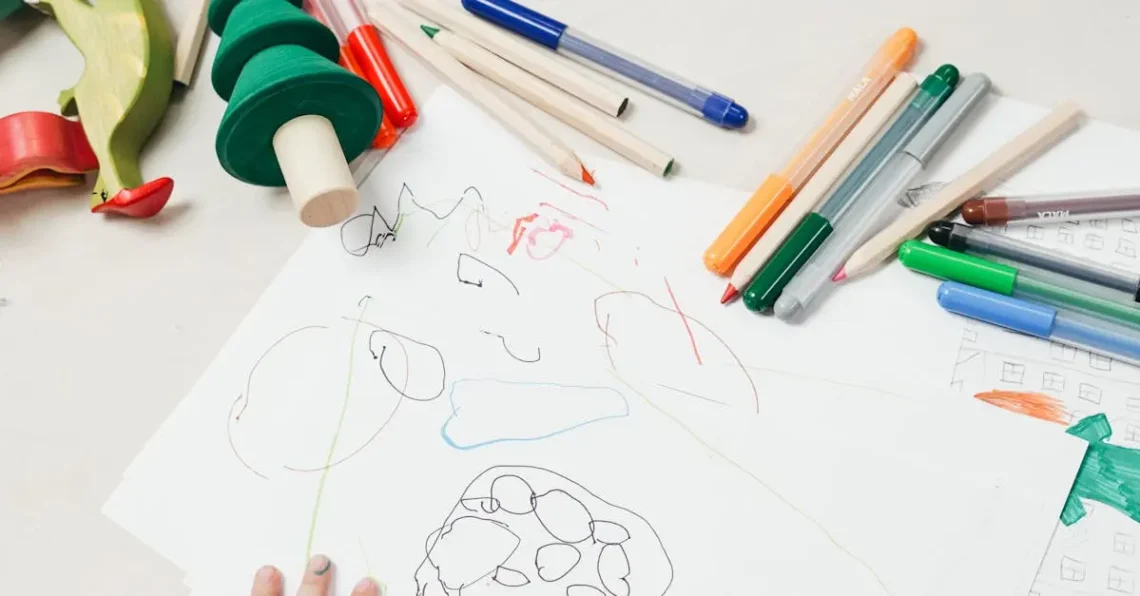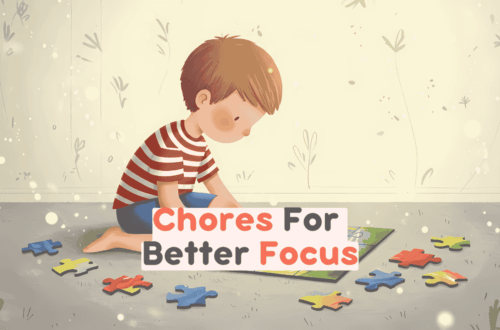As any parent knows, getting kids to pitch in around the house can feel like an uphill battle, but learning to teach kids hard work early can make all the difference. Yet, learning to teach kids hard work early is one of the most powerful ways to build responsibility, independence, and confidence. By introducing simple chores and consistent expectations, you’re helping them develop habits that last a lifetime.
If you’re looking for a simple starting point, consider grabbing our free printable chore charts by age, designed to help make chore tracking straightforward and age-appropriate.
Why You Should Teach Kids Hard Work Early
Research in developmental psychology reveals that engaging kids in chores from an early age boosts their self-discipline, autonomy, and social-emotional skills. A study published in Child Development found that children who regularly take on household responsibilities are more likely to be successful, motivated, and independent adults.
Learning hard work early isn’t simply about completing tasks—it’s about fostering valuable life skills like perseverance, time management, and accountability. When children understand the connection between their efforts and positive outcomes, they develop a growth mindset that serves them in school, relationships, and future careers.
Key reasons for early hard work include:
- Responsibility: Kids learn that their actions directly impact their family and environment.
- Self-Esteem: Completing chores builds confidence and pride in contributing.
- Independence: Regular tasks nurture autonomy and decision-making skills.
- Work Ethic: Early habits translate into better motivation and resilience later in life.
Age-Appropriate Chores to Teach Kids Hard Work Early
Not sure where to begin? Choosing age-appropriate chores ensures your child isn’t overwhelmed and experiences success. Here’s a practical list sorted by age group based on developmental skills.
Preschoolers (Ages 3–5)
- Picking up toys
- Putting clothes in hamper
- Setting napkins on the table
- Watering plants
Early Elementary (Ages 6–8)
- Making their bed
- Clearing the table after meals
- Feeding pets
- Helping with laundry (sorting clothes)
- Basic dusting or sweeping
Preteens (Ages 9–12)
- Preparing simple meals or snacks
- Vacuuming floors
- Taking out trash and recycling
- Folding laundry
- Helping with grocery unpacking
Teens (Ages 13+)
- Cooking family meals
- Lawn care and garden tasks
- Car washing
- Managing their own laundry
- Babysitting younger siblings (with supervision)
Remember, consistency is key! For more detailed chore assignments customized by age, check out the chores by age guide.
Also, keep handy our free printable chore chart to track these tasks and celebrate progress as a family.
Tips to Teach Kids Hard Work Early (and Make It Fun)
It’s not always smooth sailing when encouraging kids to work hard early. Here are some parenting strategies to make the process easier:
- Set Clear Expectations: Explain why chores matter and the benefits of contributing.
- Establish Routines: Consistent timing helps kids remember and prioritize chores.
- Use Positive Reinforcement: Praise effort, celebrate small wins, or use rewards thoughtfully to motivate kids without arguments.
- Avoid Nagging: Instead, use calm reminders and model the behavior you want to see. For more on this, see our article on tips to make chores easier.
- Make It a Shared Family Effort: When parents join in, kids feel teamwork instead of isolation.
Watch out for common mistakes like assigning chores that are too difficult or too easy, inconsistent rules, or failing to acknowledge effort. Remember, teaching responsibility takes patience and kindness. For deeper insights on fostering accountability, check out our post on teaching kids responsibility through chores.
How to Track Progress When You Teach Kids Hard Work Early
Keeping track of chores can sometimes feel overwhelming—both for parents and kids. This is where digital chore charts like the Kikaroo app come in handy.
Kikaroo helps you assign age-appropriate tasks, track completion, and reward your child’s hard work in a fun, interactive way. It transforms chores into a positive routine rather than a dreaded obligation. By using a tool designed for families, you support your child’s journey toward responsibility and independence while reducing daily stress.
Helpful Resources for Parents
- Explore the ultimate guide to age-appropriate chores for detailed breakdowns suitable for each developmental stage.
- Discover effective ways to motivate your kids and transform chore time into a positive experience.
- Understand how to nurture responsibility through chores with practical advice and examples.
Conclusion
When you teach kids hard work early, you’re giving them lifelong tools for success. Why kids should learn hard work early is clear: it builds the foundations of responsibility, independence, and a positive work ethic that will serve them for life. When parents create supportive environments with age-appropriate tasks, clear expectations, and encouraging tools like the Kikaroo app, chore time becomes an opportunity for growth rather than conflict.
Ready to empower your child’s journey toward independence and resilience? Start today by downloading our free printable chore charts by age and explore how the Kikaroo app can make tracking chores smooth and enjoyable for your whole family.
FAQ
At what age should kids start doing chores?
Children as young as 3 years old can begin simple chores like picking up toys or putting clothes in hampers. Age-appropriate tasks build skills gradually and encourage responsibility from early childhood.
How do chores help kids develop responsibility?
Chores teach kids that their actions have consequences and value. Consistent completion of tasks fosters accountability, self-discipline, and a sense of contribution to the family.
What if my child resists doing chores?
Use positive reinforcement, set clear expectations, and keep routines consistent. Avoid nagging by involving children in chore planning and linking tasks to natural rewards.

 Home
Home Features
Features Testimonials
Testimonials Downloads
Downloads FAQ
FAQ Blog
Blog







